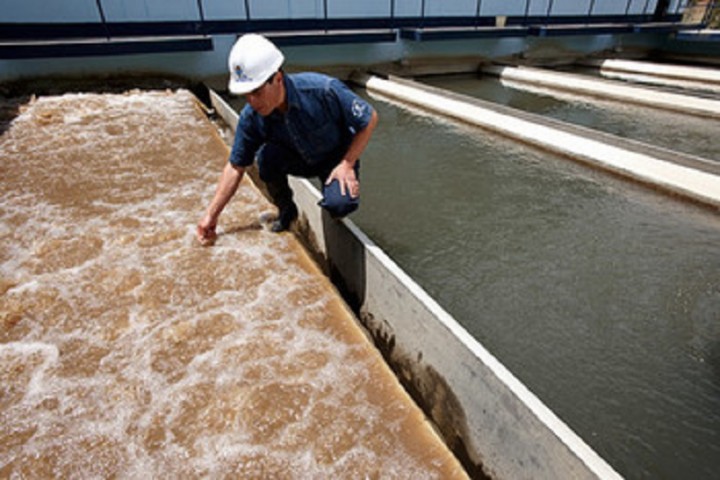Programme for the modernisation and improvement of municipal water management (PROAGUA II)
2015 - 2019 • Deutsche Gesellschaft für Internationale Zusammenarbeit (GIZ) GmbH
Purpose
To provide water utilities in Peru better drinking water supply and sanitation services.
Activities
Water resources in Peru’s densely populated areas along the Pacific coast are scarce and, in most cases, contaminated. Industrial and domestic wastewater flows untreated into rivers. This situation is exacerbated by urbanisation, climate change and surface water pollution.
In many regions, water utilities are very small. Financial management is poor, water charges do not cover costs and operations are often determined by political influence. This has a severely detrimental impact on the quality of the water supply and wastewater management.
The Peruvian government is working to prepare urban water supply and sanitation services to meet the challenges of climate change. The improvement and long-term security of the water supply is a political priority. The Ministry of Housing, Construction and Sanitation is striving for swift implementation of the structural reform of municipal water management that has been developed in recent years.
The project focuses on five strategic elements of the complex reform process in the water sector:
Advising the responsible ministry and subordinate authorities on implementation of the new framework legislation on municipal water management.
- Institutional strengthening of the newly established Technical Body for the Sanitation Services Administration (Organismo Técnico de la Administración de los Servicios de Saneamiento, OTASS).
- Improving the performance of four local water utilities that are participating in the ministry’s reform programme; cofinanced by the Swiss State Secretariat for Economic Affairs (SECO) and supported by the consulting firm Akut.
- Transfer of knowledge and technology relating to the treatment and reuse of wastewater.
- Working with the most important training institutes in Peru to develop and expand certification systems and dual training schemes for water and wastewater technicians.
Images

Image: PROAGUA II © - GIZ
Countries of activity
Location of main activity
Further information
Results
- Four water utilities that are under transitional management have drawn up plans for immediate measures that enable them to significantly improve their commercial and technical capability. This will ensure the long-term water supply for 590,000 people by 2019.
- 13,250 water meters have been installed in Moquegua, thereby encouraging careful use of drinking water. Numerous leaks in the water supply system have been repaired. This makes more water available for new connections.
- The discharge of industrial wastewater is better controlled. Companies are therefore increasingly pre-treating their wastewater or paying fees to discharge wastewater.
- Wastewater charges are being reinvested in wastewater management. This ensures financial and environmental sustainability.
- Two water utilities have agreed to sell treated wastewater. This increases revenue and reduces pollution. In addition, it gives wastewater a value as a resource in times of water scarcity.
- The first 100 students have started their training as water and wastewater technicians.
- Hundreds of technicians are preparing for a new certification process. Forty per cent of the technical staff of 20 water utilities will be certified by the end of 2018. This will ensure long-term and professional operation of the grids and facilities.
Implementing agency:
Ministry of Housing, Construction and Sanitation
Contact information
Hans-Werner Theisen
Login to see the e-mail-adress of the contact person.
Filter tags
Capacity development German government Government-owned entity (not university or research) Greywater or wastewater Latin America & Caribbean Politicians and local decision makers Practitioners Specific to one or several countries Treatment of wastewater or greywater
Links
Deutsche Gesellschaft für Internationale Zusammenarbeit (GIZ) GmbH
Eschborn
Germany
Uploaded by:
SuSanA Admin (susanaadmin)
















